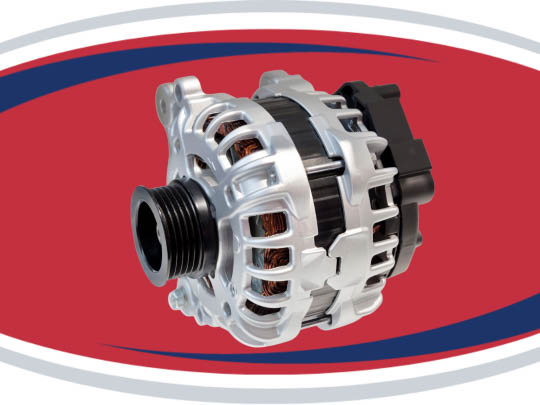
When a car won’t start, it’s common to jump to the conclusion that the battery is bad. But the battery is far from the only thing that will prevent a car from starting. Often the culprit is the alternator.
 The alternator plays a crucial role in your vehicle’s charging system. It is responsible for charging the battery and powering the electrical systems while the engine is running. A malfunctioning alternator can lead to various issues. So how do you know if it’s the alternator that’s at fault? Here are some of the most common signs and what to do about it:
The alternator plays a crucial role in your vehicle’s charging system. It is responsible for charging the battery and powering the electrical systems while the engine is running. A malfunctioning alternator can lead to various issues. So how do you know if it’s the alternator that’s at fault? Here are some of the most common signs and what to do about it:
Dimming Headlights and Electrical Issues
One of the most common signs of a failing alternator is dimming headlights. If you notice your headlights becoming noticeably dimmer while driving, it could be a clear indicator that the alternator is not generating enough power. Additionally, you might experience flickering dashboard lights or other electrical anomalies.
Warning Lights on the Dashboard
Modern vehicles are equipped with a dashboard warning light for the charging system. If the alternator is not functioning properly, this light, often shaped like a battery, will illuminate. Ignoring this warning can lead to a no start situation, and replacing or charging the battery will only help temporarily.
Strange Noises From the Engine
Unusual noises emanating from the engine compartment can also be indicative of alternator issues. A whining or grinding noise may suggest that the alternator bearings are worn out or that the internal components are malfunctioning. If you hear such noises, it's advisable to have your alternator promptly inspected by a professional.
Difficulty Starting the Car
A failing alternator can lead to a drained battery, making it difficult to start the vehicle. If you find yourself frequently jump-starting your car or if it struggles to turn over, you may have a bad battery, or it could be a sign that the alternator is not effectively charging the battery.
Stalling or Loss of Power
As the alternator powers crucial electrical systems, a malfunction can lead to stalling or a loss of power while driving. If your vehicle suddenly loses power or stalls, the alternator could be the culprit.
What to Do If You Suspect a Bad Alternator
Get a Professional Inspection
If you notice any of the aforementioned signs, it's recommended to have your vehicle inspected by a professional mechanic. They will perform diagnostic tests to determine the health of your alternator and other components in your charging system. Ultimately, this will save you the time, money and aggravation associated of replacing a part that doesn’t fix the problem.
Check the Battery
Sometimes, issues with starting the car may be attributed to a faulty battery rather than the alternator. Ensure the battery is in good condition before jumping to conclusions.
Replace the Alternator
If the alternator is indeed found, through a professional charging system diagnostic service, to be faulty, it's crucial to replace it promptly to avoid further damage to the vehicle's electrical system and components.
Timely detection and replacement of a failing alternator can save you from unexpected breakdowns and expensive repairs. If you notice any of the mentioned symptoms, don't hesitate to consult with a professional mechanic to ensure the continued health of your car's electrical system.